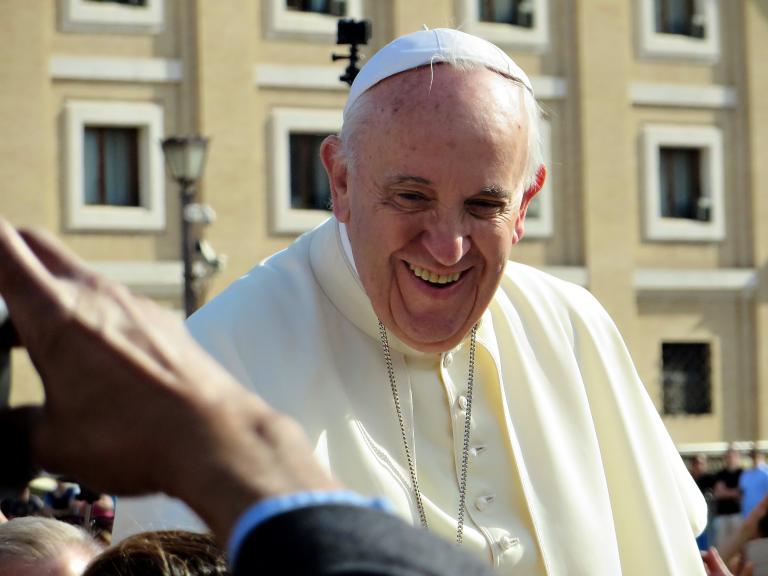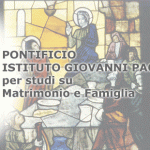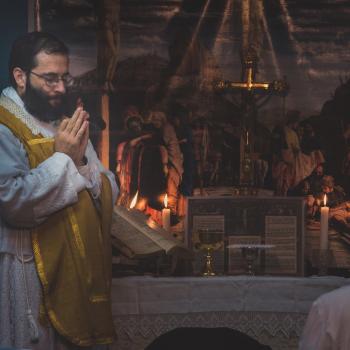
In the debate over Amoris Laetitia, many people assume Pope Francis is allowing Communion for the divorced and remarried in many cases. The debate then switches to if this is good or not. And in this debate, there is a great dichotomy in Catholic discussion. Even in other moral topics, we see a dichotomy where each side takes part of the Catholic view, but not the whole. Pope Francis presents something else that actually includes what is right in both views and supersedes both views.
Division Regarding Amoris Laetitia
From the publication of Amoris Laetitia, Catholic circles have debated whether it is good or bad to allow Communion for the divorced and remarried continuing in relations. However, incorrect assumptions about what Amoris actually says are often behind this. Numerous theologians like Card. Müller, Fastiggi, Eden-Goldstein, Granados, Kampowski, Pérez-Soba, and even I have repeatedly tried to correct these misunderstandings. We have noted that the document does not allow widespread Communion for the divorce remarried. (A selection of articles from the theologians mentioned above pointing out AL does not allow Communion for the divorced and remarried intending to continue relations: 1, 2, 3, 4, 5, 6, 7, and 8.)
Most interpreting chapter 8 as allowing widespread Communion for the divorced and remarried continuing relations have a small oversight. They forget to take into account one key line Francis has about discernment early in that chapter (300): “Discernment can never prescind from the Gospel demands as proposed by the Church.” Discernment is within Church teaching, not apart from it or redefining it. He follows this statement up with perquisites for discernment that paraphrase St. Ignatius of Loyola.
If you missed that distinction, you might think that almost anything is fair game in discernment. However, I think part of Francis’s wisdom is that he wants to open as much as possible to discernment while maintaining the absolute moral teachings of the Church.
Other Moral Questions
Similar discussions often come up in other moral issues the Church. For example, a recent blog presented a tough case regarding NFP where a woman was very scared of a pregnancy. Her fear of PTSD from miscarriages and being overwhelmed by current kids made her seriously consider abortion. A friend, the author, suggests contraception in such a case. The story includes two priests. The first seems to give a kind of situational ethics saying that although Church teaching is true, you can disobey it sometimes. The second priest suggests, “All I could do, he said, was make sure that she committed suicide in a state of grace, without the sin of contraception on her soul.”(!)
Since this is an anonymous story, I don’t want to misjudge either priest as the author may have misunderstood them. However, the story doesn’t mention other avenues to pursue in discerning other possibilities within Church teaching. I and several others in the comments mentioned a rather odd line needing much further investigation: “Her husband had minimal tolerance for the periodic abstinence required by NFP.” How could anyone do discernment about what is right for this couple without considering the husband’s perspective? Especially, when it seems likely to be the cause of her problems. He has chosen, at least on some level, to put his own sexual gratification above his wife’s psychological well-being.
Church teaching gives us a very clear definition that abortion and contraception are always morally wrong. But, it never says anything about a couple needing to practice NFP, or needing to use a particular type of NFP, or how long a month they should abstain, or how many kids they should have, or exactly what timing they should strive for with those kids, or anything of the sort. Within the matrix of options, I don’t think there is a single right choice for every Catholic couple. Church teaching limits unacceptable areas but does not define which of the acceptable options a particular couple should take. That is where discernment comes in.
Chesterton’s Analogy Leads to Pope Francis’s Solution to the Dichotomy
G. K. Chesterton gives an analogy that is very applicable in this case, which I’ll develop. He notes that church teaching is like walls – but walls protecting us from falling off a cliff. If we were on an island with 100-foot cliffs around and a raging sea below, most of us would huddle in the center. We’d be scared and want to protect ourselves from the danger. However, if there are solid walls just before those cliffs that we knew we could rely on, instead of cowering in the center we could run around, play soccer, enjoy a good beer, or all kinds of wonderful possibilities. Chesterton argues that the Church’s moral teaching allows us to enjoy life fully within those walls.
Pope Francis often points out the limits of where we can go in the Church. For example, in Gaudete et Exsultate 161, he noted, “We should not think of the devil as a myth, a representation, a symbol, a figure of speech or an idea. This mistake would lead us to let down our guard, to grow careless and end up more vulnerable.” But he doesn’t stop there.
At the same time, Pope Francis emphasizes discernment. For him, it allows this particular person to determine where within the walls to set up their abode. It is not as a way to climb the walls and fall into the sea. A Catholic can never set up shop away from Church teaching, but within it, many options exist. One can discern: religious or layperson, Franciscan or Jesuit, Susan can marry Joe or Steve, praying the rosary or the divine mercy chaplet daily, etc. None of these choices have a wrong or sinful option.
Pope Francis Builds on John Paul II Regarding Discernment
The concept of discernment is in previous Popes, but Francis seems to focus on it more. St. John Paul II said, “Pastors must know that, for the sake of truth, they are obliged to exercise careful discernment of situations.” (Familiaris Consortio, 84) John Paul II looked at discernment as picking between the possible options form those options within Church teaching. He is noting the difference between the one being abandoned and the one abandoning, or similar distinctions. For example, a pastor would probably discern a more conciliatory path for an abandoned spouse than the one abandoning.
Francis develops the idea of discernment in various ways based off John Paul II. Francis wants young people to discern who they marry: “The decision to marry and to have a family ought to be the fruit of a process of vocational discernment.” (Amoris Laetitia 72, cf. 209) He also applies this to people with marital complexities: “In such cases, bishops are called to exercise a pastoral discernment which is commensurate with their spiritual good.” (AL 249) It would never be in the spiritual good of a person to lead them outside the walls of Church teaching.
Francis says that discernment should foster growth, both in the spiritual life and in virtue (AL 293). He speaks of, “A process of accompaniment and discernment which guides the faithful to an awareness of their situation before God.” (AL 300) If you are making someone aware of their situation before God, you can’t be ignoring or sidestepping their moral responsibilities.
Francis seems to want to try to find the best option for each individual or couple within Church teaching. And he sees discernment as the way there.
Conclusion
This understanding of Francis resolves the dichotomy between the two sides. The one side wants to be certain we maintain the rules. This methodology completely maintains the absolute certainty of rules as the limit to discernment. The other side wants to find a solution for people in tough situations, even if outside the ordinary. This view does that by putting an emphasis on discernment within the Church’s moral teaching.
















